Are you struggling to find happiness? Is your desire to find happiness making you frustrated? Are your unrealistic goals making you miserable? Then it is time for you to practice the Korean philosophy of Sohwakhaeng – small but certain happiness.
Spreading like wildfire in social media, Sohwakhaeng (소확행) is an online trend among Korean youth and has quickly become the preferred lifestyle among people tired of pursuing traditional “success” and “happiness”. Rather than being obsessed with finding happiness through their career, relationships or materialistic possessions, Korean youths are seeking happiness in little things. But what are these little things that make this Korean philosophy so unique and special? Let’s explore.
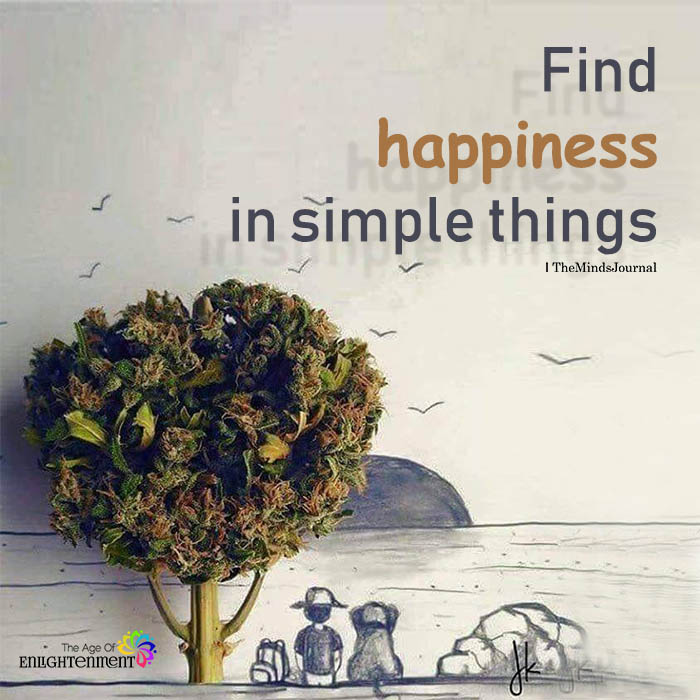
What is Sohwakhaeng?
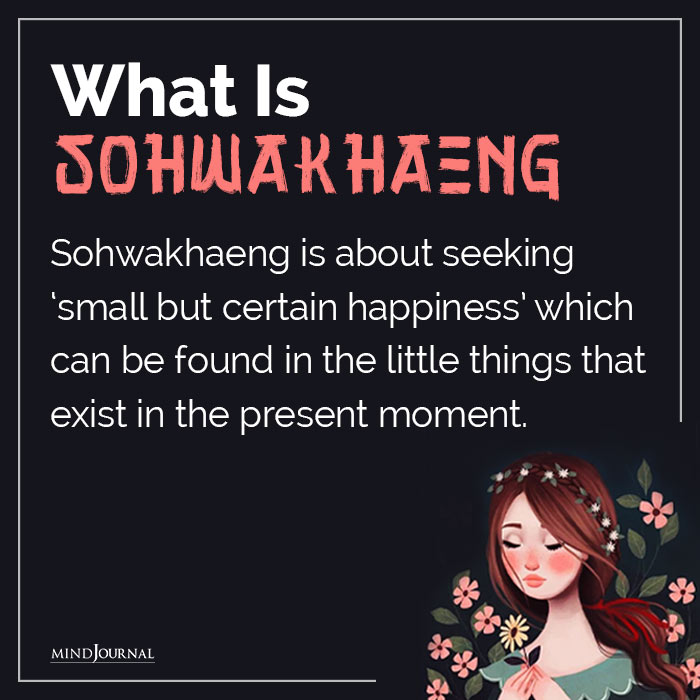
Roughly translating into ‘small but certain happiness’, sohwakhaeng is about seeking happiness in the little things that exist in the present moment, regardless of how uncertain the future may be. Here, the focus is not on the intensity of the feeling of happiness, rather on the certainty of that feeling, regardless of how small or brief the happiness may be.
When you practice sohwakhaeng, you can find “definite happiness” in daily, simple experiences that you may not even consider uniquely pleasing or enjoyable. For instance, drinking a hot cup of coffee in the morning and enjoying a moment of peace before the challenges of the day roll in. Hence, in essence, sohwakhaeng in Korean philosophy also involves an element of gratitude as it makes us appreciate the small things which we take for granted.
Related: How To Truly Appreciate and Enjoy The Little Things in Life
Origin of Sohwakhaeng
Based on the core principle of mindfulness, this Korean philosophy was originally introduced by Japanese author Haruki Murakami in his essay “Afternoon in the Islets of Langerhans” in 1986. According to Murakami, happiness can be found anywhere and everywhere, provided we learn to manage our emotions, expectations and need to feel immensely happy. Sohwakhaeng allows us to value the little gifts of daily life over money, attention, sex, success etc.
In his writing, Haruki Murakami explains that happiness can be gained from mundane & small things like –
- Buying new clothes
- Eating freshly baked bread
- Going for a run in the morning
- Enjoying your company and finding bliss in solitude
- Enjoying the pleasing change of the weather
- Reading a good book
- Listening to some relaxing music after a long, tiring day
- Sleeping an hour longer on Sundays
- Hugging someone you love
- Eating some good chocolate
- Taking a long, relaxing warm shower
- Playing with your pets or animals
- Enjoying the moment of satisfaction after a challenging workout session
- Thinking about happy memories from your past
- Watching a new series or a movie and realizing it’s a new favorite
- Spending time with your family, friends and loved ones
- Doing silly and stupid things for no reason
- Cooking a new recipe and you find it actually tastes good
- Breathing in the fresh, clean air after it rains
- Making time to do what you love
- A date with your partner, a friend or even yourself
- Going to bed early
While these mundane, daily things and experiences might appear unappealing and insignificant to most of us, according to this Korean philosophy, these “little things” can boost our mood, build positive emotions, and make us a lot happier in life.
Sohwakhaeng: The Korean secret to happiness

The pursuit of happiness is tricky and misleading. We have been programmed and trained to believe that being busy, working long hours and sacrificing our personal lives for professional success can lead to true happiness. So we keep working hard every single day, expecting to experience this elusive “happiness” one day when we become “successful”. But this “happiness” never comes no matter how “successful” we become. This is because we have been trained and conditioned to conform to society’s definition of success and happiness. But if having a successful career, buying a new apartment and getting married made us happy, why are most successful people stressed and depressed? Why are married people getting divorced? Simply because life is complicated and has several layers of gray between black and white.
Related: The Epicurean Philosophy: How To Be Happy and Seek Pleasure
Yes, we should work hard and strive to be “successful”, but we need to define what success and happiness means to us. For me, success looks a lot like a day where I didn’t get stressed or anxious, or argued with anyone or felt forced to work late at the office. For me, happiness looks like feeling calm and fulfilled every night before going to bed. For me, success and happiness looks like making my loved ones happy and spending quality time with them. But that’s just me. We all need to define what happiness and success means to ourselves and not blindly accept preconceived definitions. And perhaps this is why innumerable Korean individuals are now widely adopting the philosophy of sohwakhaeng as it allows them to experience definite happiness. For instance, many young Koreans are opting to invest their savings into traveling instead of purchasing materialistic things like buying a house.
When you feel overwhelmed, stressed, and exhausted, experiencing a brief moment of happiness, peace and contentment can completely change your thoughts, emotions, mood, and behavior. Sohwakhaeng allows you to pause in your busy day and enjoy fleeting moments of little happiness. These moments are like momentary rewards that add value and meaning to your life. Instead of waiting for a grand moment of happiness, which is mostly uncertain, sohwakhaeng inspires us to seek happiness in daily normal moments that we are certain will occur. This is the Korean way to find balance, satisfaction and happiness in your fast-paced, turbulent life.

“People do not need a significant amount of money for happiness. However, they can achieve happiness from little things,” explains a 2020 study. The researchers have observed that for young Koreans, life has become seriously stressful and exhausting. However, practicing sohwakhaeng, which inherently involves mindfulness and gratitude, can improve overall subjective well-being, according to the study. “People who are trying to achieve happiness from small things, find or create satisfaction and gratitude in their routine lives. As such, more Koreans are turning to sohwakhaeng or small but certain happiness for respite from the hardships of everyday life,” explain the researchers.
Related: Ichigo Ichie: 10 Principles Of The Japanese Art of Living Every Moment
How to find happiness with Sohwakhaeng
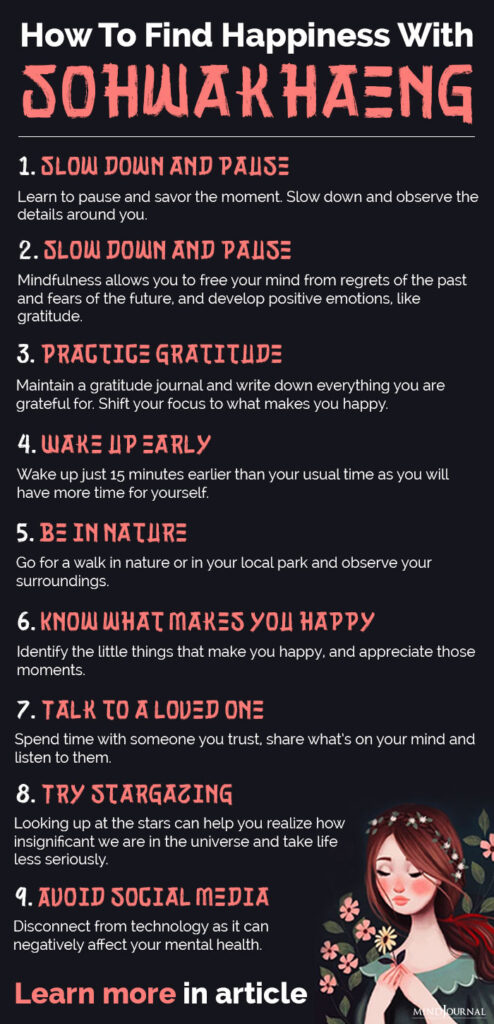
Appreciating the small things requires that we are grateful for what we have, focus on living in the present moment and pursuing what actually makes us happy instead of goals that make us feel miserable. It is necessary that we stop taking life and everyday experiences for granted and show gratitude for the little things that occur everyday. However, all of this can happen only after you start to shift and transform your mindset and attitude towards mundane daily moments and experiences. Sohwakhaeng is achieved when you are happy with what you have and experience in the present moment, instead of being obsessed with BIG goals and achievements that you may or may not accomplish. This is how you can enjoy small but certain experiences of happiness.
Here are a few ways to appreciate the little things in life and enjoy small but certain happiness with sohwakhaeng –
1. Slow down and pause

Instead of rushing through things so that you can reach the finish line earlier without having to deal with all the chaos and drama, learn to pause and savor the experience. Even when a moment is not as pleasing as you would like it to be, slow down your life and look for the silver linings among the darkest clouds. Focus on the details, write down the important parts as memories, and share your excitement with others.
The only way to enjoy small but certain happiness is to deliberately start slowing down and observe the details around you as being busy and stressed will make you ignore everything.
Related: 5 Things To Choose If You Just Want To Be Happy
2. Be mindful
Live in the present moment. Not in the past. Not in the future. But in the NOW. Mindfulness is the awareness of the present moment and it can inspire us to enjoy the little things and practice sohwakhaeng. Being mindful allows you to free your mind from regrets of the past and fears of the future, which enables you to observe the details in the present. Mindfulness enables you to develop positive emotions, like gratitude, and helps you better deal with negative thoughts and feelings, like stress and anxiety.
When you are aware of every single detail in the present moment and are better able to cope with negative emotions, you will be more capable of experiencing moments of small but certain happiness.
3. Practice gratitude
Appreciating what you already have is one of the basic steps of practicing sohwakhaeng. One of the core practices needed to enjoy the small moments of life is being thankful for the little things in your life. The simplest way to do this is to maintain a gratitude journal and write down everything you are grateful for. It can be something very meaningful, like your career, or something as simple as having a nice meal at the end of a long day.
Instead of focusing on what you don’t have or the people you don’t really like, shift your focus to what makes your life better – like the people who love you and goals you have already accomplished. One of the best things you can do is to write down 3 things that you are grateful for the day before going to bed.
Related: Contentment over Happiness: Why It’s Better To Be Content Than Happy

Here are some other quick ways to invite the Sohwakhaeng philosophy into your life –
4. Try to wake up just 15 minutes earlier than your usual time as you will have more time for yourself in the morning and you won’t have to rush through it.
5. Go for a walk in nature or in your local park and be aware of your surroundings. Observe the weather, breeze, birds and animals and allow your intuition to guide you.
6. Identify the little things that make you happy, such as your favorite food, working out or lazying around on a Sunday afternoon, and appreciate those moments.
7. Talk to someone you trust and care about, share what’s on your mind and listen to them without any judgment. Focus on building an emotional connection with them.
8. Look up at the stars as stargazing can help you realize how insignificant we are in the vastness of space and the universe. This realization can make you take life less seriously and enjoy the moments of small but certain happiness.
9. Detach from technology and stay away from social media as it can negatively affect your mental health. When you stop staring at your phone all the time, you will be better able to look at all the beauty of nature around you.
Related: What Is Eudaimonia? Why It Is Much Better Than Happiness
Live in the moments with Sohwakhaeng
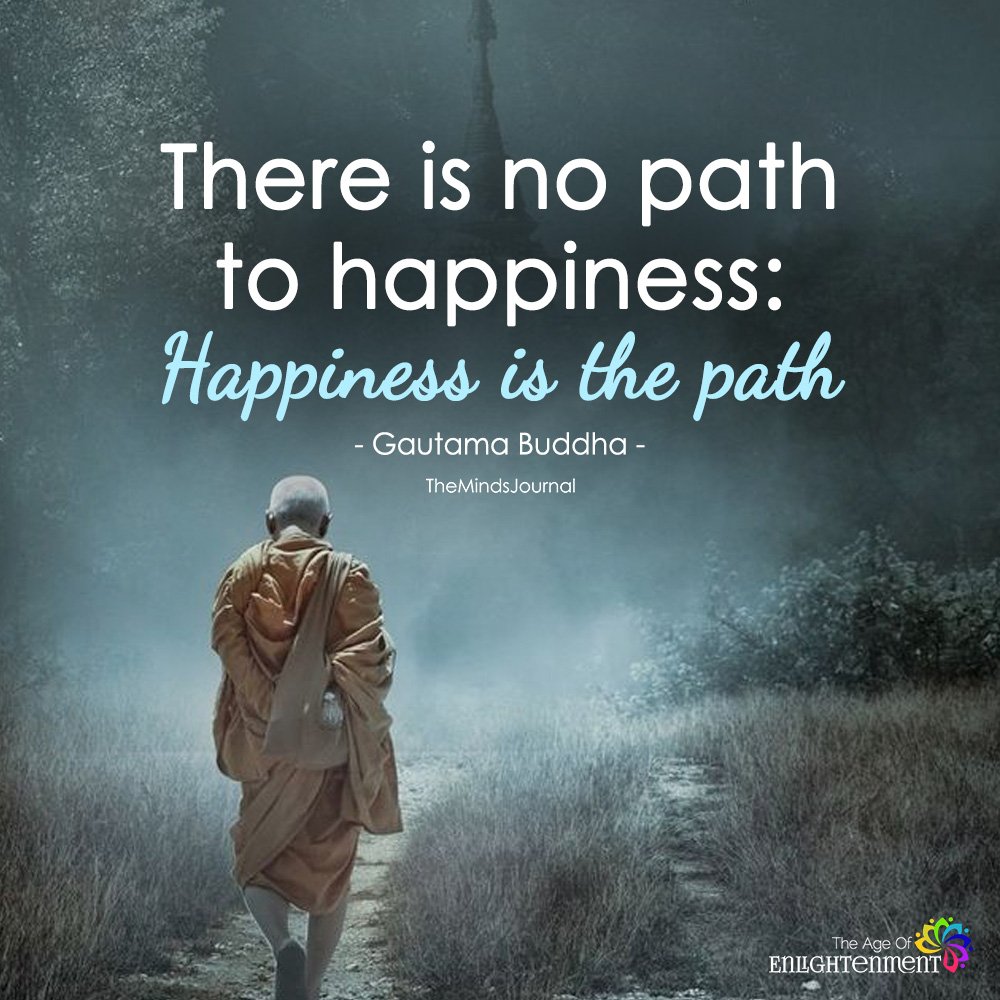
We live in a chaotic and fast paced world where we are always hurrying for something. We are always running after something, which leads to stress, anxiety, depression, and frustration about an uncertain future. We have been programmed by our society to chase, pursue and value only highly intense feelings of happiness, while completely ignoring the inherent joy that lies in every simple moment. But it is the things we do in our everyday life that makes our lives purposeful and satisfying. Sohwakhaeng brings the focus back on the moments that may not be grand, but give you feelings of certain happiness. It helps you in finding fulfillment.
These small moments of definite happiness can inspire, empower and drive us to achieve bigger goals, help us relax when we are overwhelmed and help us experience happiness without the burden of any expectations.
So go ahead and enjoy the little things. Happiness will find you when you least expect it.
Related: What Is Hygge? How To Introduce This Danish Lifestyle In Your Life
Have you experienced sohwakhaeng yet? Let us know in the comments below.
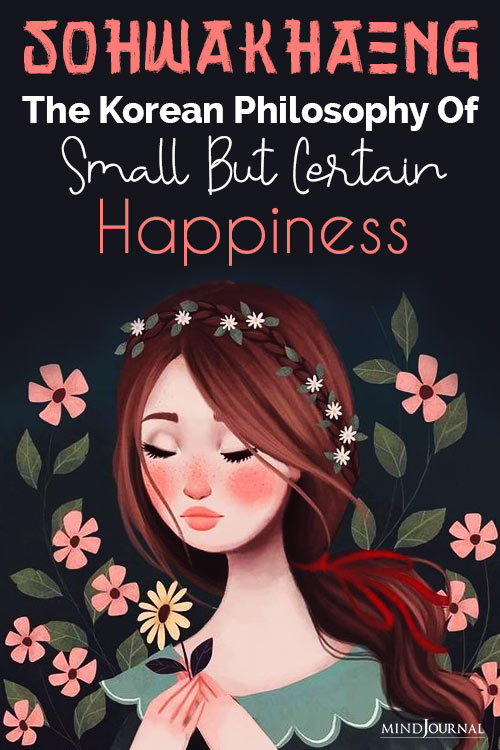
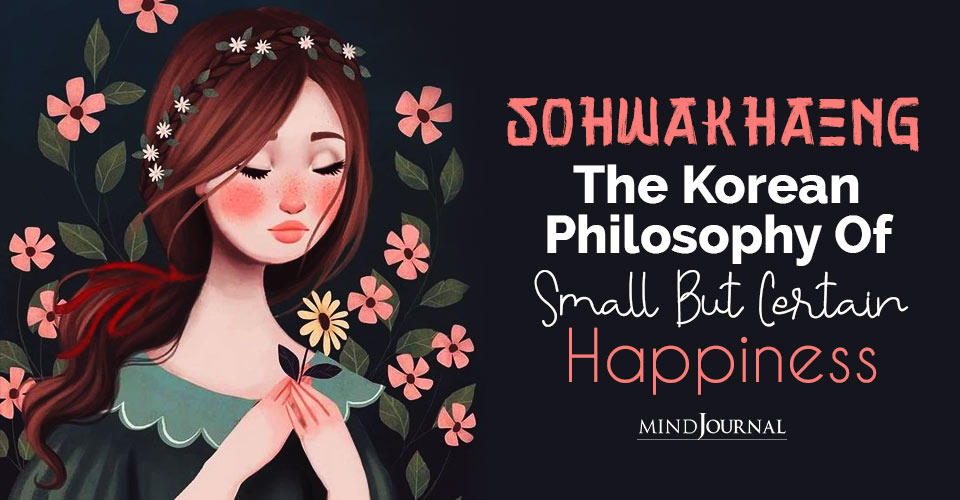



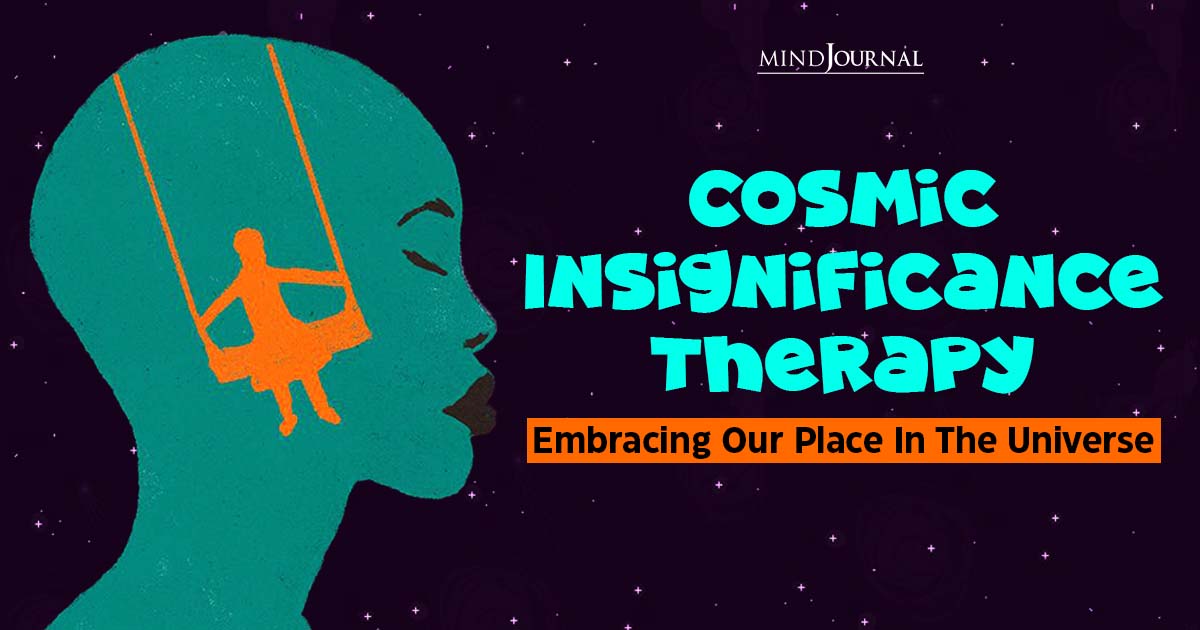



Leave a Reply
You must be logged in to post a comment.